Abstract
Tumors were induced in adult and newborn rabbits by inoculation of fibroma virus. Whereas tumors completely regressed in adult rabbits by 3 weeks after virus inoculation, newborn rabbits supported tumor growth for 3 to 4 weeks. In the latter case, some animals died at this time, others survived with a gradual regression of the tumors over an additional period of 5 to 6 weeks. Virus neutralization studies demonstrated antibodies to fibroma virus in the serum from both adult and newborn tumor-bearing rabbits. Newborn rabbits with progressively growing tumors failed to elicit a delayed cutaneous hypersensitivity reaction to fibroma antigens, whereas adult rabbits showed strong reactions as early as 7 days after tumor induction. Similarly, macrophage migration inhibition tests revealed that the lymphocytes from newborn rabbits with progressively growing tumors were only weakly reactive to fibroma antigens, as compared to lymphocytes from adult tumorbearing rabbits. In contrast, newborn rabbits that survived and regressed the tumors demonstrated strong cell-mediated immunity both by skin testing and migration inhibition. Virus growth studies in cell culture demonstrated that fibroma was unable to replicate in peritoneal macrophages from either newborn or adult rabbits. No differences were observed in growth of the virus in macrophages from tumor-bearing rabbits. The significance of these observations is discussed in respect of the possible role of cell-mediated immunity in fibroma tumor regression.
Full text
PDF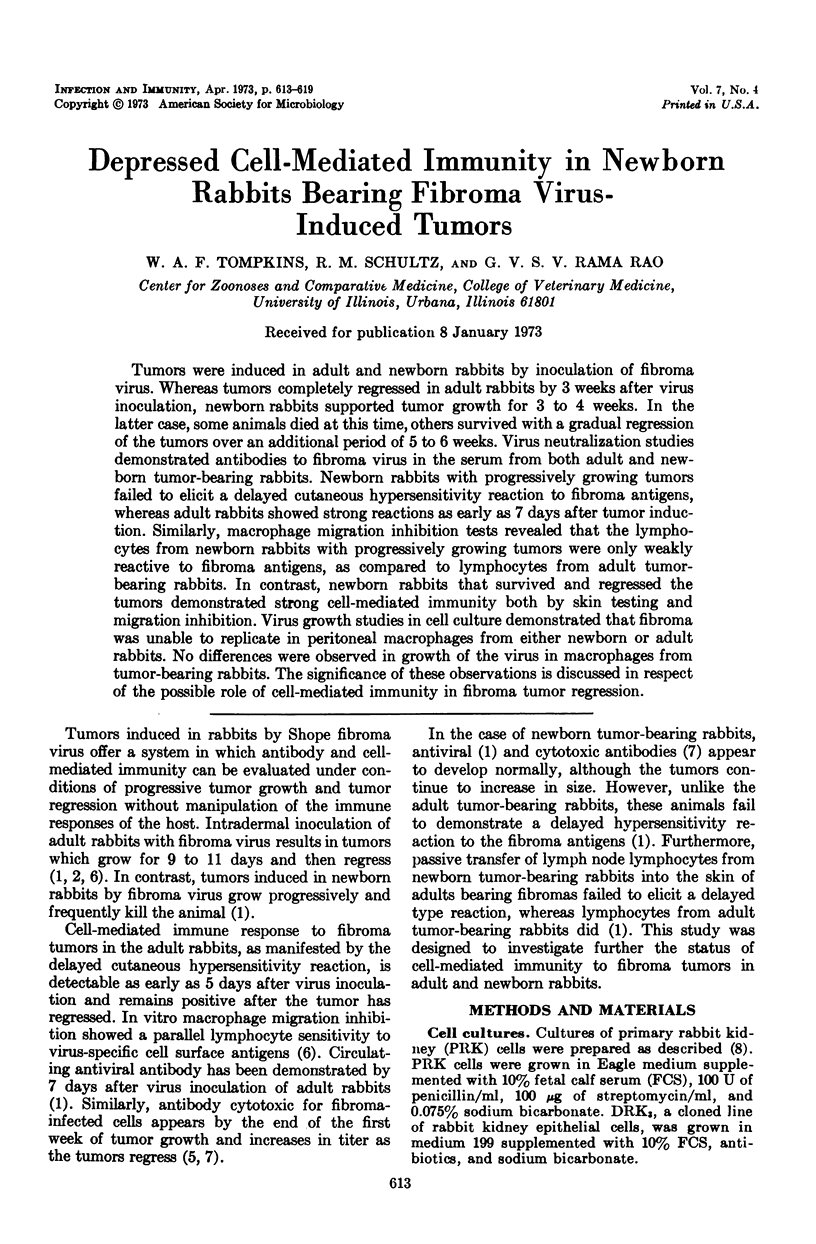
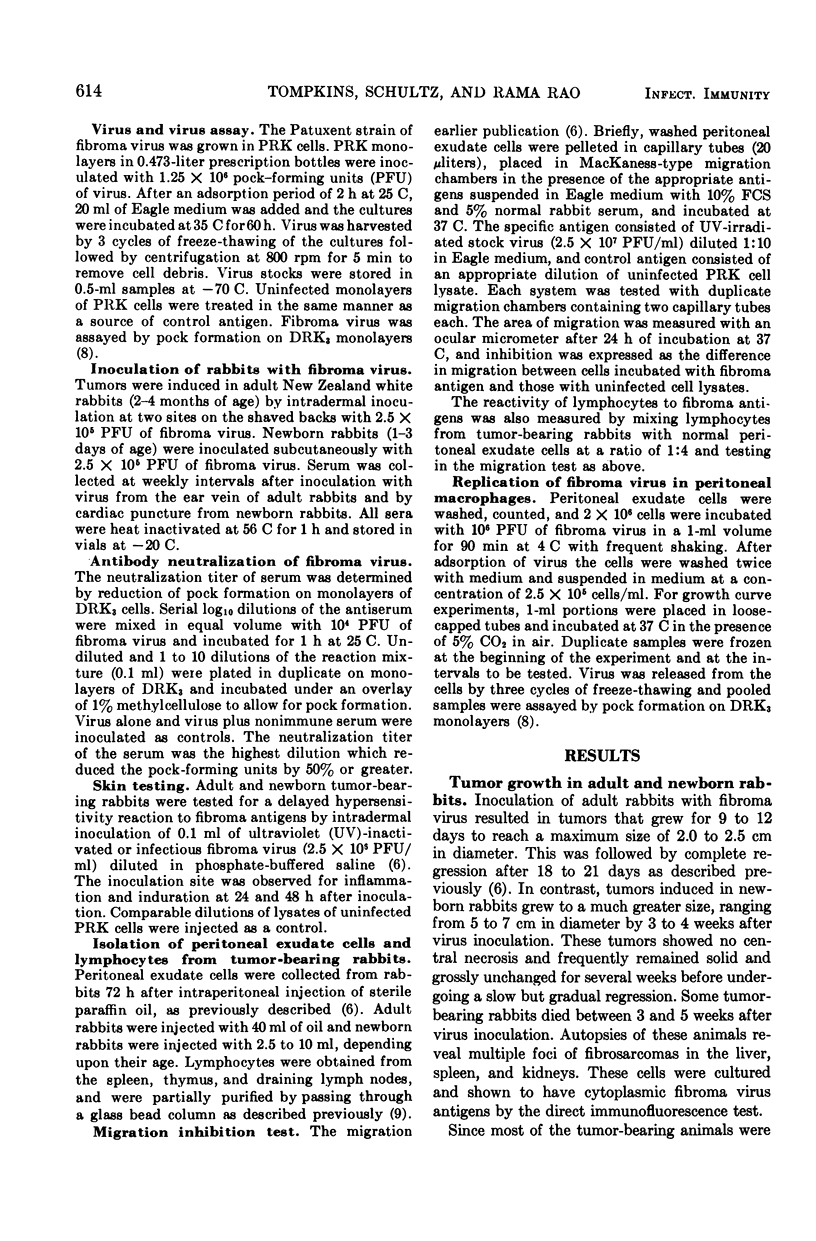
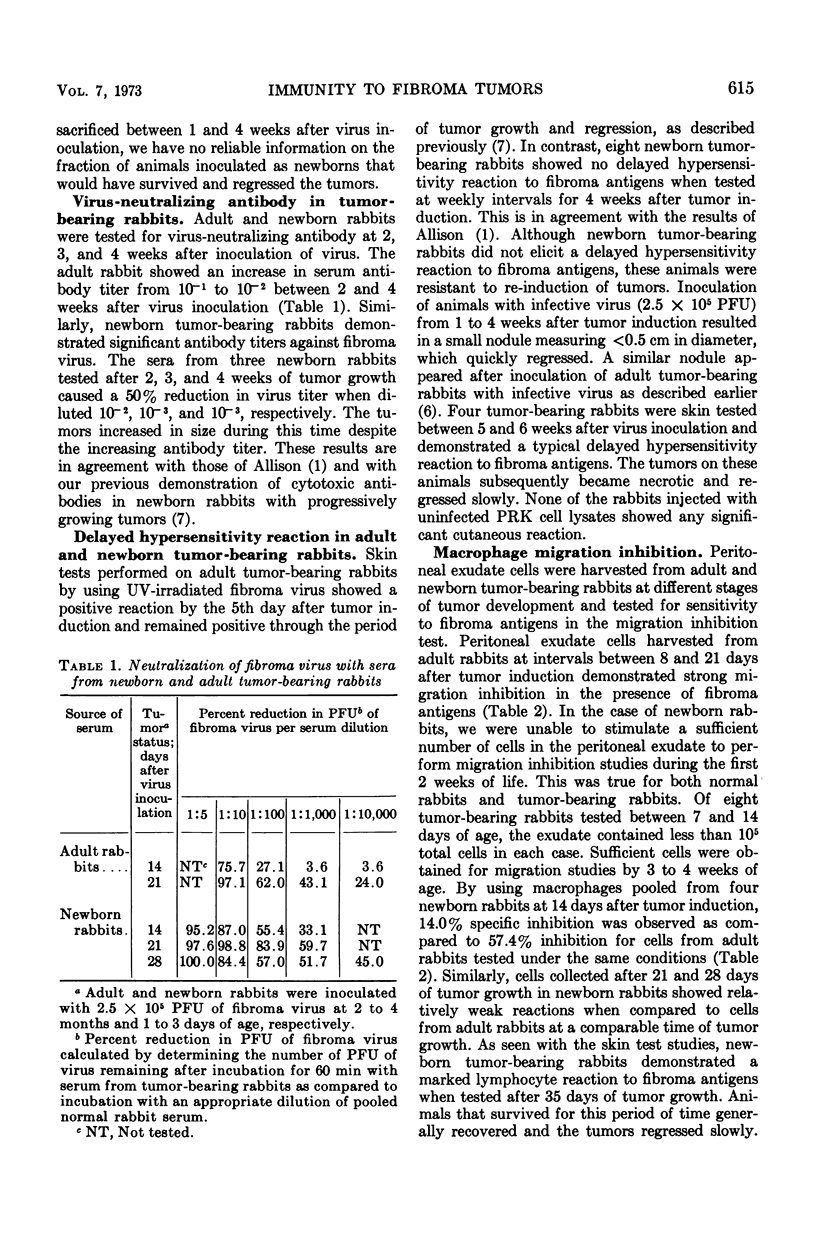
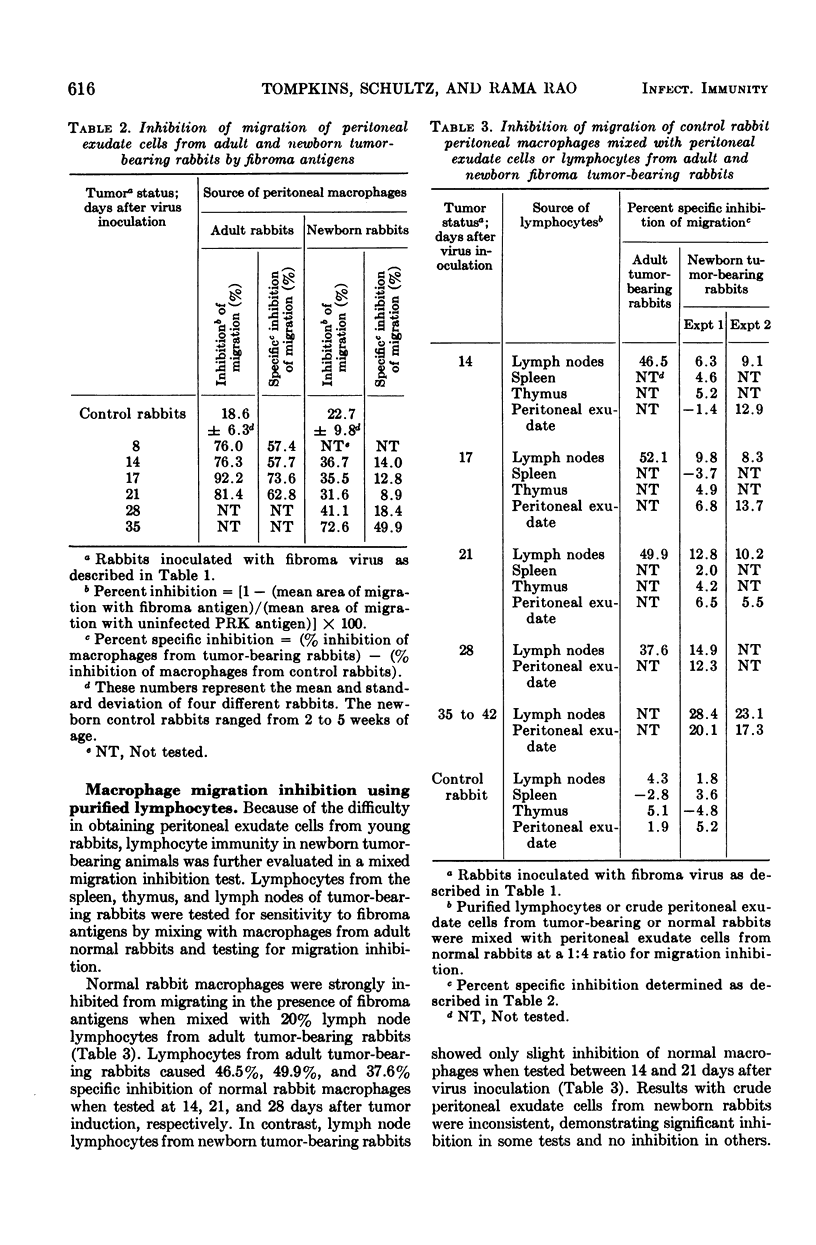
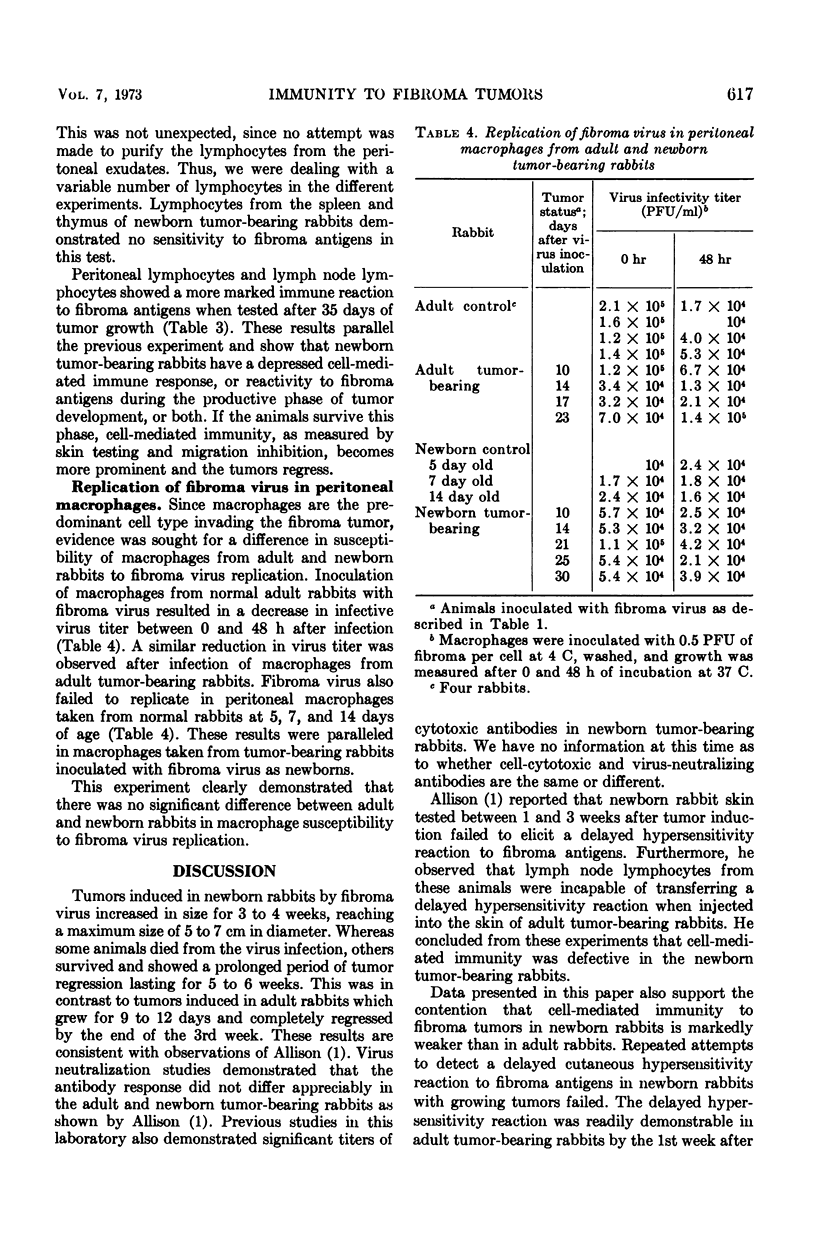
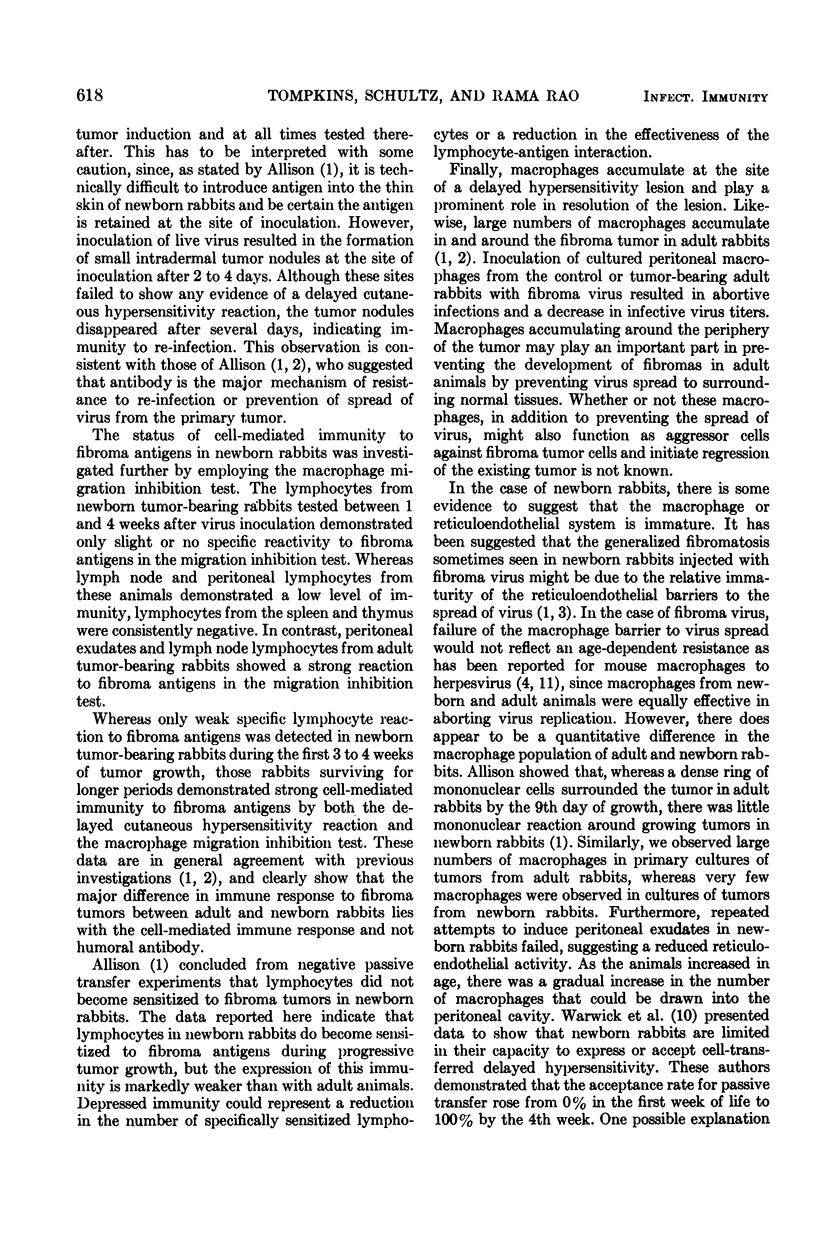
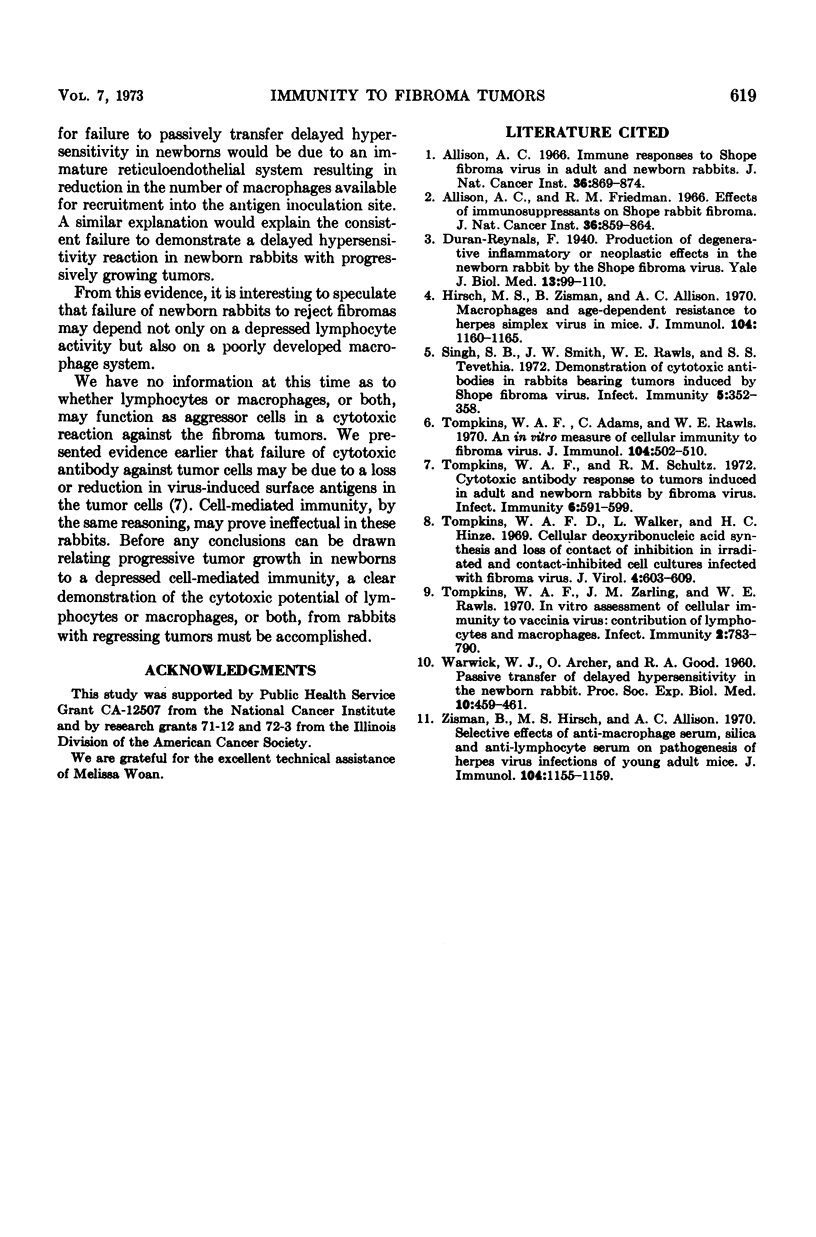
Selected References
These references are in PubMed. This may not be the complete list of references from this article.
- Hirsch M. S., Zisman B., Allison A. C. Macrophages and age-dependent resistance to Herpes simplex virus in mice. J Immunol. 1970 May;104(5):1160–1165. [PubMed] [Google Scholar]
- Singh S. B., Smith J. W., Rawls W. E., Tevethia S. S. Demonstration of cytotoxic antibodies in rabbits bearing tumors induced by Shope fibroma virus. Infect Immun. 1972 Mar;5(3):352–358. doi: 10.1128/iai.5.3.352-358.1972. [DOI] [PMC free article] [PubMed] [Google Scholar]
- Tompkins W. A., Adams C., Rawls W. E. An in vitro measure of cellular immunity to fibroma virus. J Immunol. 1970 Feb;104(2):502–510. [PubMed] [Google Scholar]
- Tompkins W. A., Schultz R. M. Cytotoxic antibody response to tumors induced in adult and newborn rabbits by fibroma virus. Infect Immun. 1972 Oct;6(4):591–599. doi: 10.1128/iai.6.4.591-599.1972. [DOI] [PMC free article] [PubMed] [Google Scholar]
- Tompkins W. A., Walker D. L., Hinze H. C. Cellular deoxyribonucleic acid synthesis and loss of contact inhibition in irradiated and contact-inhibited cell cultures infected with fibroma virus. J Virol. 1969 Nov;4(5):603–609. doi: 10.1128/jvi.4.5.603-609.1969. [DOI] [PMC free article] [PubMed] [Google Scholar]
- Tompkins W. A., Zarling J. M., Rawls W. E. In vitro assessment of cellular immunity to vaccinia virus: contribution of lymphocytes and macrophages. Infect Immun. 1970 Dec;2(6):783–790. doi: 10.1128/iai.2.6.783-790.1970. [DOI] [PMC free article] [PubMed] [Google Scholar]
- WARWICK W. J., ARCHER O., GOOD R. A. Passive transfer of delayed sensitivity to the newborn rabbit. Proc Soc Exp Biol Med. 1960 Dec;105:459–461. doi: 10.3181/00379727-105-26140. [DOI] [PubMed] [Google Scholar]
- Zisman B., Hirsch M. S., Allison A. C. Selective effects of anti-macrophage serum, silica and anti-lymphocyte serum on pathogenesis of herpes virus infection of young adult mice. J Immunol. 1970 May;104(5):1155–1159. [PubMed] [Google Scholar]


